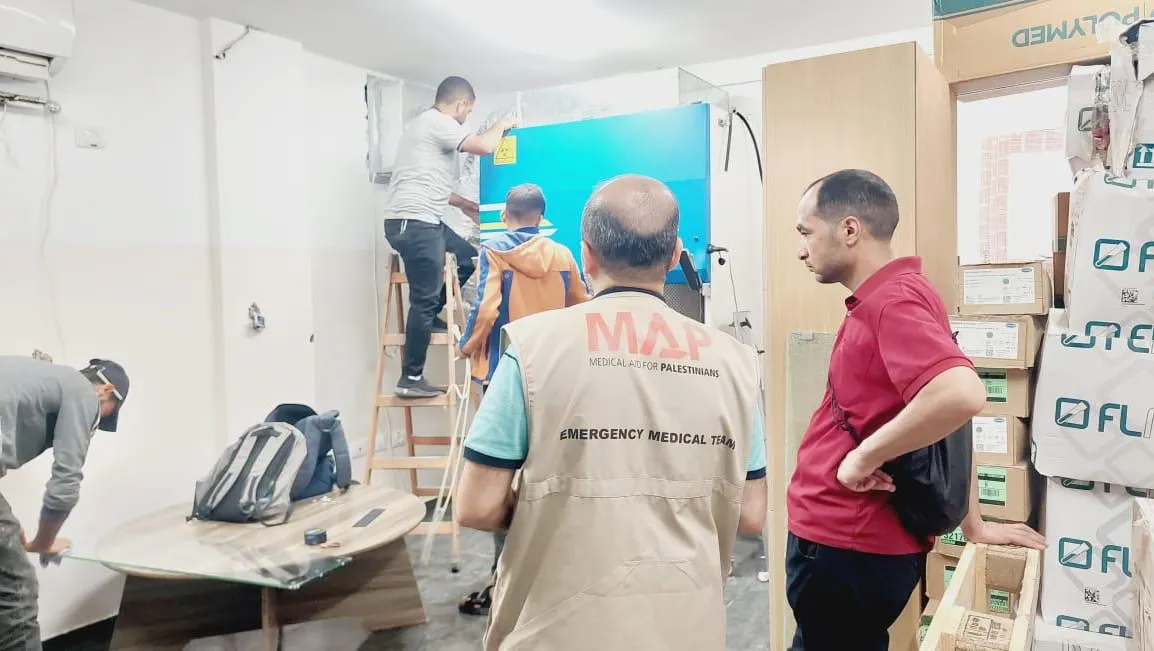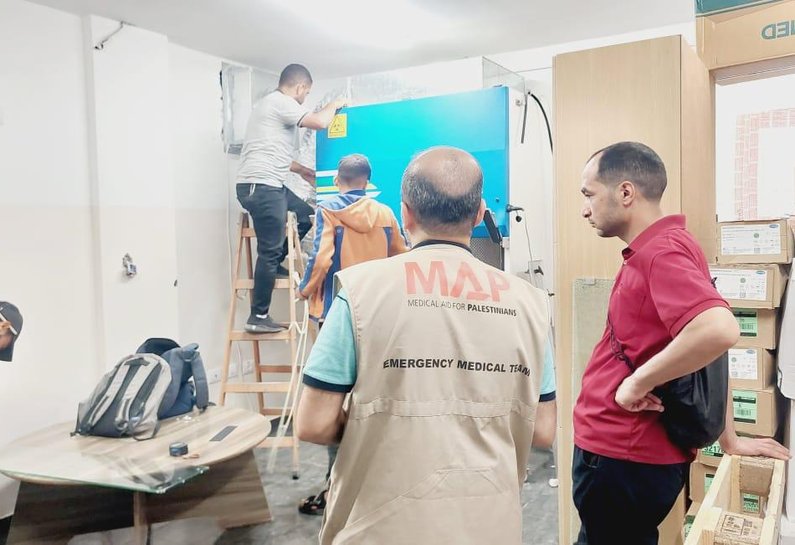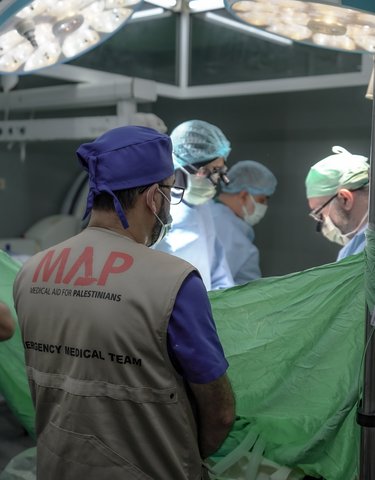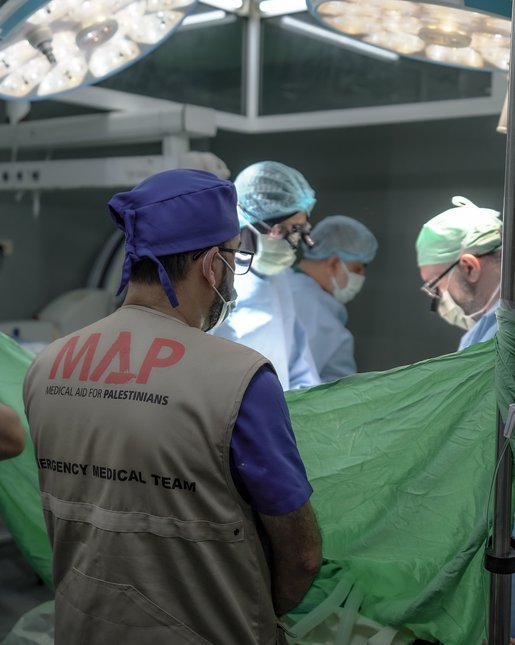How MAP is sustaining cancer care amid Israel’s war on Gaza’s healthcare
4 September 2025

Israel’s war on healthcare in Gaza is pushing hospitals and health services ever closer to complete collapse. Cancer patients are among the most affected, as the destruction of healthcare facilities, especially the Turkish-Palestinian Friendship Hospital, Gaza’s only specialised cancer hospital, has severely disrupted their access to lifesaving treatment.

In October 2023, an Israeli military airstrike hit the third floor of the Turkish-Palestinian Friendship Hospital, located south of Gaza City. Days later, fuel shortages – due to Israel’s blockade and the denial of fuel entry – forced its closure, putting 70 patients at risk, with four confirmed dead due to lack of medical care. On 21 March 2025, the hospital was completely destroyed by the Israeli military. The result was devastating: chemotherapy services halted, cancer wards shut down and patients, many already facing delayed diagnoses, were left without care.
With the destruction of the Turkish-Palestinian Friendship Hospital, Medical Aid for Palestinians (MAP) responded urgently to restore cancer treatment. In collaboration with the Palestinian Ministry of Health (MoH), we worked to relocate chemotherapy services to the European Gaza Hospital in Khan Younis.
We delivered essential medical equipment, furniture, and provided support to exhausted healthcare workers to maintain the delivery of care. We also ensured a consistent supply of medicines and chemotherapy resources to meet the growing needs of cancer patients across Gaza. From October to December 2024 alone, 1,353 cancer patients, both children and adults, received chemotherapy treatment, and 3,758 patients accessed medication through outpatient clinics.
But transportation emerged as another critical barrier to care. With the European Gaza Hospital located in the far south of Gaza, many patients struggled to reach the hospital, due to the destruction of roads, fuel shortages, and Israel’s ongoing genocide.
Recognising this urgent need, MAP took action. In April 2025, we launched a dedicated transportation service in partnership with the Hope and Peace Foundation. Patients across Gaza could safely reach the European Gaza Hospital and begin or continue their treatment without enduring exhausting, dangerous journeys.
However, the cancer crisis continued to worsen as Israeli military attacks on hospitals escalated. In May 2025, the European Gaza Hospital was forced to shut down following sustained attacks. Following its closure, MAP urgently relocated all cancer services to Nasser Hospital. We began by reopening inpatient wards, followed by outpatient clinics for consultations and treatment. The most challenging step, resuming chemotherapy services, was achieved by the first week of June.
Repeated efforts by the World Health Organisation to coordinate the transfer of essential equipment, such as the chemotherapy preparation machine, were denied. So, MAP stepped in to find alternatives. We repaired an old machine available at Nasser and upgraded it with the necessary safety enhancements to allow safe chemotherapy preparation for both patients and staff. MAP covered all the costs, making it possible for cancer patients to resume treatment.
By 8 June 2025, full cancer services had resumed at Nasser. In June alone, 296 chemotherapy sessions were delivered, 1,593 patients received outpatient consultations and medication, and 55 new cancer cases were registered, highlighting the urgent need and swift impact of this work.
Despite efforts to restore chemotherapy services at Nasser, cancer patients now face a new challenge. The Israeli military has repeatedly attacked the hospital in the past few months and issued forced displacement orders in the immediate areas surrounding the hospital. Reaching it involves serious personal risk, yet the number of patients continues to grow, reflecting the bleak reality that, for many, chemotherapy is their only hope of survival.
Compounding the danger is a total lack of transportation due to the fuel crisis, which has also forced the suspension of MAP’s patient transport initiative. Patients must now navigate perilous conditions to reach Nasser Hospital, which, despite ongoing threats, continues to operate and deliver lifesaving care.
Since September 2024, MAP has supported 16,238 cancer patients across Gaza – 4,828 with chemotherapy and 11,410 with essential medications. Looking ahead, we plan to set up a dedicated cancer care unit in northern Gaza to ensure patients in the north can access care closer to home.
Despite the immense challenges, MAP continues to adapt and respond, committed to providing access to lifesaving treatment for those who need it most. But continued support is essential. With your help, we can expand these vital services and reach more patients in need.
Photo: After the Israeli army forced the European Gaza Hospital out of service and denied transporting any medical equipment or devices, MAP led efforts to restore cancer treatment by relocating the service to Nasser Hospital.

